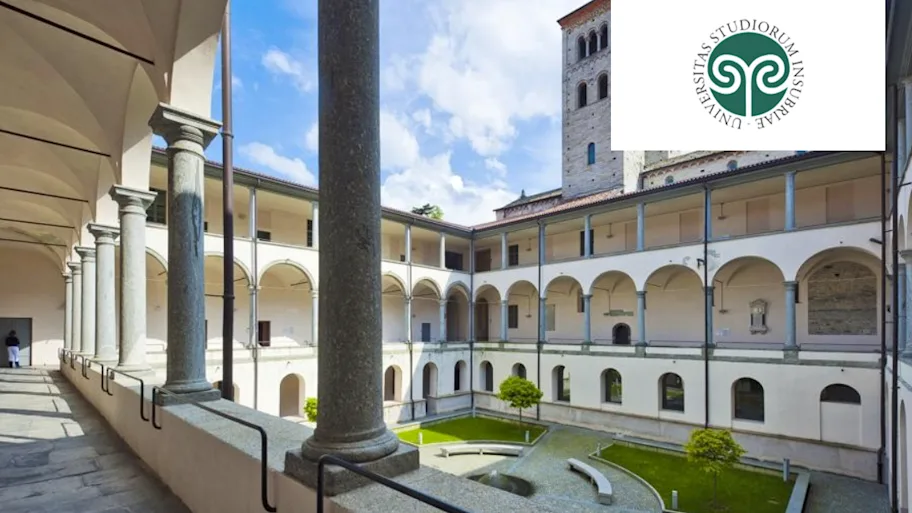
- Science News
- Institutional partnerships
- Strengthening research integrity in Italy: a landmark commitment in Rome
Strengthening research integrity in Italy: a landmark commitment in Rome

The inaugural National Congress on Research Integrity, held in Rome on January 27-28, 2025, marked a defining moment for Italy’s research ethics landscape. Spearheaded by the National Research Council of Italy (CNR), the Congress provided an unparalleled platform for dialogue, collaboration, and commitment to fostering a robust culture of research integrity (RI). A significant outcome of the event was the signing of the Declaration of Rome, a landmark document that underscores the importance of ethical research practices and accountability at national and international levels.
A federal and international initiative
With representatives from institutions in Norway, the United States, and other global research powerhouses, the discussions highlighted the necessity of coordinated action to address integrity challenges in a rapidly evolving scientific landscape. CNR, a longstanding advocate for research ethics, has consistently led the charge in Italy’s RI discourse. Under the leadership of Cinzia Caporale – Head of CNR’s Research Ethics and Bioethics Committee and former chair of UNESCO’s Intergovernmental Bioethics Committee – the institution has set rigorous ethical guidelines that have influenced broader research governance across Italy. The Congress built upon these efforts, fostering a crucial exchange of best practices and structural recommendations to bolster RI frameworks.
"This Congress aims to take stock of the shared principles and values that underpin the responsible conduct of scientific research—from study design to data analysis and evaluation, from educating young researchers on best practices to effective science communication. Given that a significant portion of research is publicly funded, it is essential to demonstrate our adherence to these values to the public," stated Elisabetta Cerbai, Professor at the University of Florence and Chair of the Presidential Committee (as well as editor with Frontiers since 2010).
Echoing Cerbai's words on public accountability, we also believe there is an intrinsic link between research integrity and open access, as both demand high levels of accountability – particularly when research is funded by public resources. This analogy is even stronger when considering that open science, by fostering transparency and accessibility, serves as a key mechanism for ensuring the integrity of scientific outputs.
The Congress underscored the necessity of aligning institutional policies with these principles, reinforcing that ethical research practices and open access are two pillars of a responsible and trustworthy scientific enterprise.
Addressing research integrity gaps and advancing open science
While Italy contributes significantly to global research output, it still lacks a centralized national code of conduct akin to those implemented in Scandinavian countries. Vidar Enebakk, Director at The National Committee for Research Ethics in the Social Sciences and the Humanities (NESH) and a representative from ENRIO, emphasized this gap, pointing to structured training programs in France, Germany, and the UK as models Italy could emulate. A key topic of discussion was the establishment of a National Observatory of Research Integrity – a proposed institution that would provide oversight, support, and standardization of ethical research practices across all Italian universities and research centers. We strongly endorse this initiative. Structural reforms are essential to ensuring long-term compliance and fostering a culture of integrity in scientific research.
Research integrity in Italy is shaped by various systemic factors. As highlighted by Daniele Fanelli (Heriot-Watt University), Italy’s rates of fabrication, falsification, and plagiarism align with European norms, and the country does not exhibit a heightened prevalence of predatory publishing. However, concerns persist, particularly in the areas of honorary authorship and the so-called "ANVUR Effect," where national research assessment policies incentivize high publication volume over originality. Addressing these challenges requires targeted policy interventions and structured education programs to instill responsible research practices at all levels.
The Congress also reinforced the central role of open science (OS) in ensuring research integrity. Michele Bucci (Temple University, Philadelphia) emphasized the importance of reproducibility and data-sharing standards, which are foundational to scientific transparency. We are proud to support institutions that exemplify best practices in this domain, such as Università dell’Insubria, which has led pioneering efforts in research ethics education and policy implementation.
The role of publishers and future directions
A holistic approach to RI requires engagement from all stakeholders – including the publishing industry. As stewards of scholarly communication, publishers play a pivotal role in upholding integrity through stringent peer review, data transparency, and adherence to ethical publishing standards. Roberto Buccione (Vita-Salute San Raffaele University) underscored this point, advocating for a systemic approach that incorporates responsibility at multiple levels: individual researchers, research teams, institutions, and the broader scientific community.
"There are far more complex issues to address. One major concern is the rise of artificial intelligence as a tool for manipulating scientific data, particularly during the publication phase.”, emphasized Cinzia Caporale, adding that, “Another equally important issue is the protection of whistleblowers – those who promptly report cases of misconduct."
Beyond these, a third fundamental aspect emerges: the need to harmonize competing interests while prioritizing research integrity as the cornerstone of a sustainable and functioning research ecosystem. We firmly believe that publishers must be included in the ongoing discourse on research integrity. As such, we stand in full support of Italy’s call for a National Observatory of Research Integrity and encourage a pluralistic, multi-stakeholder strategy that integrates publishers, policymakers, funding agencies, and scientific societies into the conversation.
In her closing remarks, CNR President and former Minister of Higher Education Maria Chiara Carrozza reinforced the need for Italy to align with European and global RI frameworks. This alignment will not only strengthen the country’s research environment but also enhance its contributions to the international dialogue on responsible research practices. We fully support this vision and recognize the establishment of a National Observatory of Research Integrity as a crucial next step in institutionalizing these efforts.
We remain committed to supporting initiatives that enhance transparency, accountability, and excellence in research. Our partnership with CNR and other key players in the Italian research ecosystem will continue to drive meaningful progress, ensuring that integrity remains at the heart of scientific discovery. By fostering collaborative action and reinforcing ethical standards, we can collectively shape a research landscape that upholds the principles of trust, rigor, and societal impact for generations to come.






